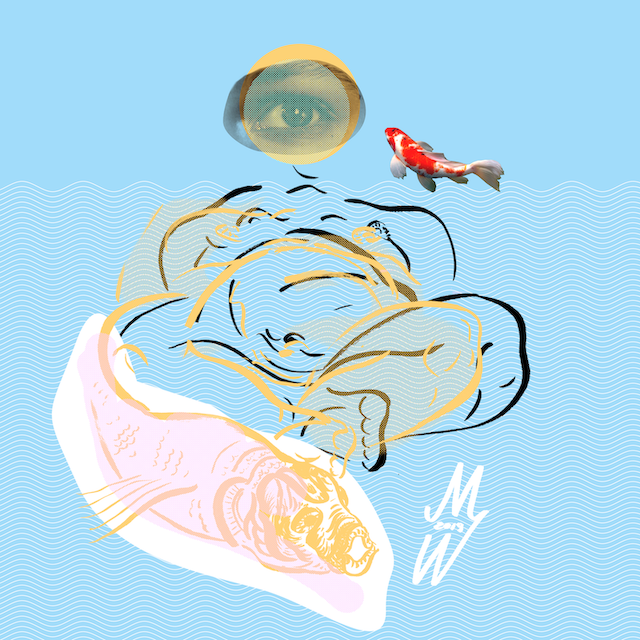What is spiritual practice?
Probably you are already dying of curiosity about what secret practice you will get to know here. In your imagination you already see yourself sitting in a lotus position, wearing
You always thought that spirituality was not for you. It always connotes some mystery techniques, needing years of practice, mortification, fasting,
Conscious.
Meanwhile, real consciousness unconditioned with ego activities as a gift is available for everybody, little kids, graybeards, monks and murderers, and possibly also animals. It could be accepted or ignored. Usually, it is a passing activity, which however leaves an indelible mark on us.
It lasts forever in our memory as a time-out experience. It is erroneous to assume that only mature people experience such revelations. They do not appear as a result of the fact that the person sits for hours in meditation or prayer. These are also not experiments reserved only for Buddha or Jesus. Spiritual practices carried out consistently, however, help to develop the ability to recall this state and extend this experience every day.
There are many techniques and practices developed by various philosophical systems or religions. None of them is better or worse.
If you are a religious person, you certainly know some methods that are related to your religion. It doesn’t mean that you have to reject or deny them. Follow the instructions you know but do it honestly and sincerely. To delve into yourself, not just repeat some boring habits, which are necessary, because this is a
Spiritual practice is your journey inside, beyond your five senses, mind, and intellect to experience the soul (god) in yourself. One of the features of god is eternal bliss, so by touching the soul, you also experience bliss.
If you are looking for inspiration, below you will find a list of the best-known practices used in various philosophical systems or religions. Maybe one of them will be right for you? Or maybe you will find something else, more suitable for you.
My advice – listen to your heart. Read, explore, experience, and choose what suits you best. Something t
Meditation.
This exercise is derived from Indian spiritual traditions and consists of controlling one’s attention and calming the mind. On observing emerging thoughts without engaging in the thought process.
Many schools teach meditation, you can go to one of them and see if this form suits you. You can also try it yourself at home. There are lots of guided meditations on YouTube which could be helpful.
Practicing gratitude.
It is based on the regular practice of gratitude, by devoting time during the day to realizing things for which we are grateful. To experience positive emotions, sleep better, express more sympathy and kindness, and even have a stronger immune system.
Sit down every day and think of five to ten things you are grateful for. The trick is that you have to imagine it and sit with a feeling of gratitude in your body. For a better result, you should notice new things every day for which you are grateful.
Doing it every day will make your brain naturally more grateful and you will start to feel happier after each session.
Praying.
The word prayer means pleading fervently. It is a request addressed to a god for something, usually with intense longing. By praying, you express the helplessness and endow the doership of a task to god in this way reducing your ego and increasing your faith. Over time, frequent prayers help to dissolve your mind and intellect, and through them, you gain access to the higher self. Intense prayer also allows you to experience communion with
Mindful Breathing.
There are specific methods of working with the breath and transferring attention to the body. They are often accompanied by visualization or repetition of sounds (mantras). Your breath is your source of life. Try to be more aware of your breathing. Note how you breathe in stressful moments and how you breathe when you take a deep breath.
Practicing a full, deep breath is a great way to everyday stress. It works healthily, oxygenates the body, energizes, clears the mind, and calms.
The simplicity of life.
The key to this practice is the idea of simplifying life to get rid of unnecessary, inauthentic, and obstacles. Understanding what is necessary and what is not. It is about the difference between our real needs and socially suggested wants. Because we live in a collective trance of consumerism and mass media, sometimes we do not realize what we need. When things cease to have power over us, we can experience great inner freedom, and have a sense of space and peace. Will, heart,
Somatic techniques.
Exercises consist of taking body postures, and movements for developing health, increasing body awareness, and releasing energy flows, e.g. asanas of yoga, tantra, and tai chi.
Contemplation.
This is a
Mindfulness.
It is a psychological process
The art of giving.
Conscious participation in the Law of Circulation, circulating universal good. This is a simple practice that cultivates the habit of giving without thinking about what you might get back. The ego-less giving leads to the release of strong vibes of happiness between the giver and the receiver.
You can practice it by helping or giving to others, donating to charity, or even volunteering for service.
Chanting.
This practice consists of singing the god’s name in a chant using a formula, verse, or syllable. Its repetition helps in mastering the mind and activating specific energy. Chanting destroys negative impressions in the subconscious and clears them internally. It helps to focus the mind.
Affirmations.
Simple, positive statements in the present tense focus on the good that causes the mind to start perceiving reality differently. Focusing on the positives and seeing the good in all things. A positive attitude creates energy that changes our reality.
Writing a spiritual journal.
These are just a few of many existing practices for sure you will find something for yourself.

